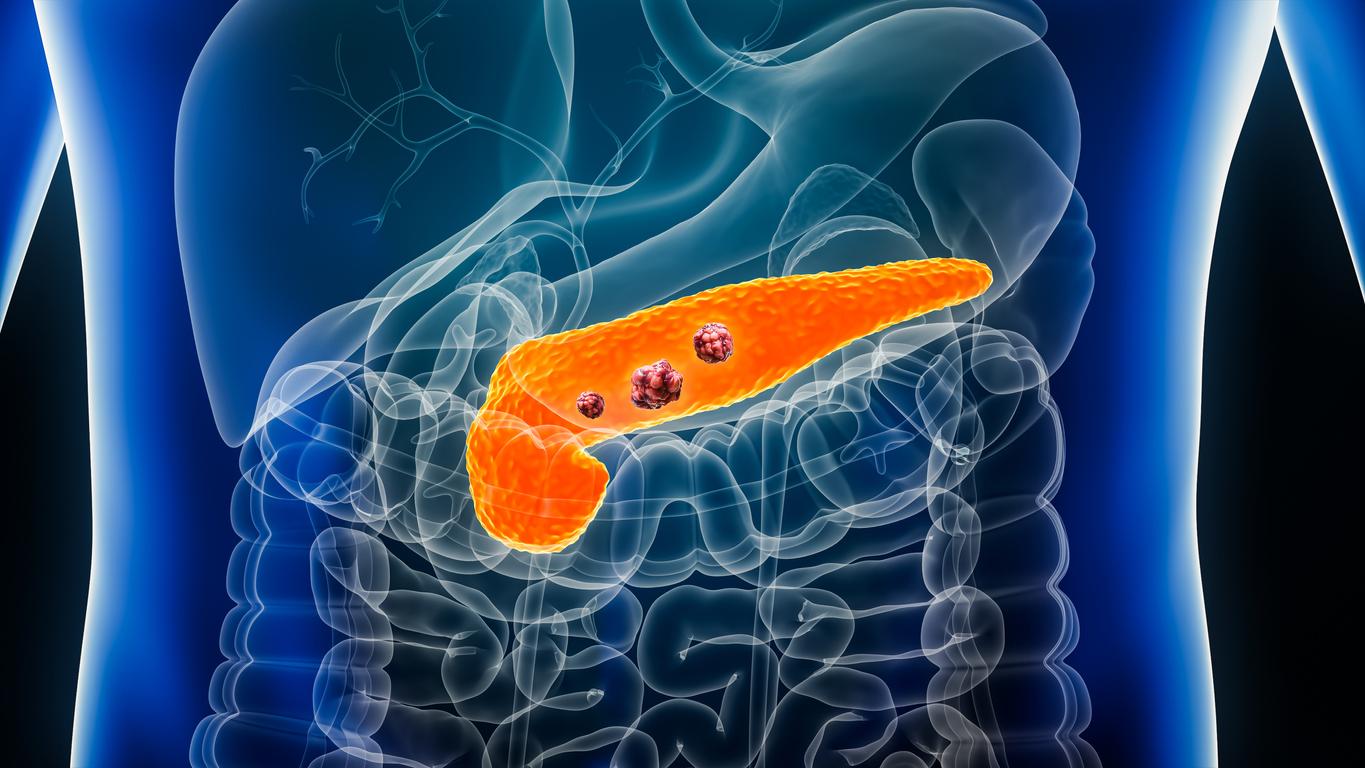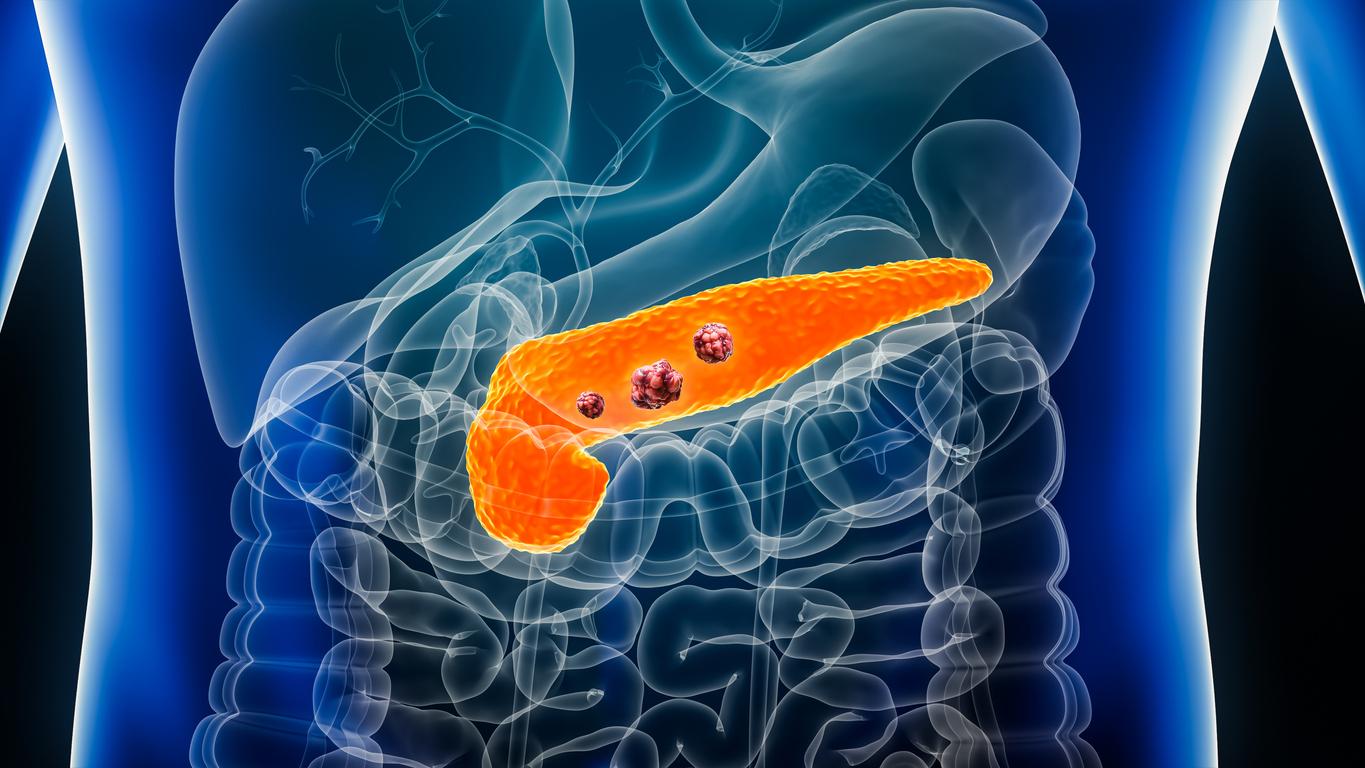Benzodiazepine drugs may be linked to poorer outcomes for adults with pancreatic cancer.

- 40.6% of adults with pancreatic cancer were taking benzodiazepines.
- Taking lorazepam, an anxiolytic, was linked to lower overall survival.
- This drug could activate the “GPR68” protein, which by stimulating the expression of the cytokine IL-6, promotes inflammation and tumor growth.
They are called “calming” or “tranquilizing”. Benzodiazepines are used to relieve anxiety, stress or insomnia. These drugs are often prescribed to cancer patients to help them cope with the stress of their disease or treatment. Issue : “there is little in-depth research on how benzodiazepine use may affect tumor,” said Michael Feigin, professor of pharmacology at Roswell Park Comprehensive Cancer Center (USA), in a statement. This is why he decided to carry out a study with his team.
As part of the work, the scientists wanted to examine the association between benzodiazepines, patient survival rates, the tumor microenvironment of pancreatic cancer, and cancer-associated fibroblast signaling. For the purposes of the research, they first assessed the number of people who take benzodiazepines during their cancer treatment.
Lorazepam linked to poorer survival in cancer patients
Among patients treated at Roswell Park Comprehensive Cancer Center for cancer of the prostate, pancreas, ovary, kidney, head and neck, endometrium, colon, breast, brain, or melanoma, 30.9% had received benzodiazepines. Patients with pancreatic cancer had the highest rate of benzodiazepine use at 40.6%. The two most commonly used benzodiazepines were lorazepam (40 adults) and alprazolam (27 patients).
According to the results, published in the journal Clinical Cancer Research, patients who took alprazolam had a 62% reduced risk of disease progression or death compared to those who did not. Conversely, patients taking lorazepam had a 3.83 times greater risk of disease progression or death than patients not taking lorazepam. According to research, taking lorazepam was linked to significantly lower overall survival in cancers of the pancreas, prostate, ovary, head and neck, uterus, colon, and breast, as well as in melanoma.

Pancreatic cancer: anxiolytic stimulates inflammation and tumor growth
“Some research has looked at the effect of benzodiazepines on tumor cell growth using models without a microenvironment. Since the tumor microenvironment plays an important role in pancreatic cancer biology, we wanted to know what benzodiazepines do to the micro-environment”, said Michael Feigin.
After doing additional studies, the authors noted that lorazepam could activate a protein called “GPR68”, which is highly expressed in tumor-supporting fibroblasts. GPR68 stimulates expression of the cytokine IL-6, which promotes inflammation in the pancreatic tumor microenvironment, resulting in increased tumor growth.
“We think the mechanism comes down to a structural difference between the different benzodiazepines. Alprazolam has the opposite effect of lorazepam, it doesn’t impact GPR68, but it strongly decreases IL-6 , and we believe this decreases the inflammatory potential of these tumours. I think it is too early to say that patients should stop taking one drug or start taking another. There is still a lot to learn in terms of ‘clinical implications’concluded Michael Feigin.

















